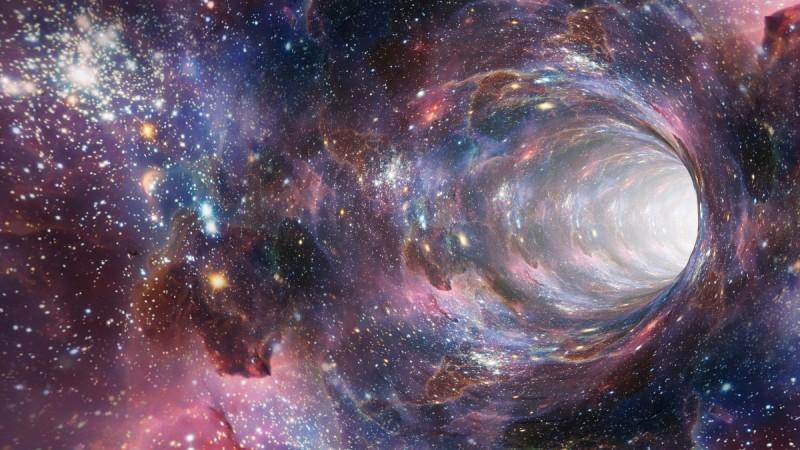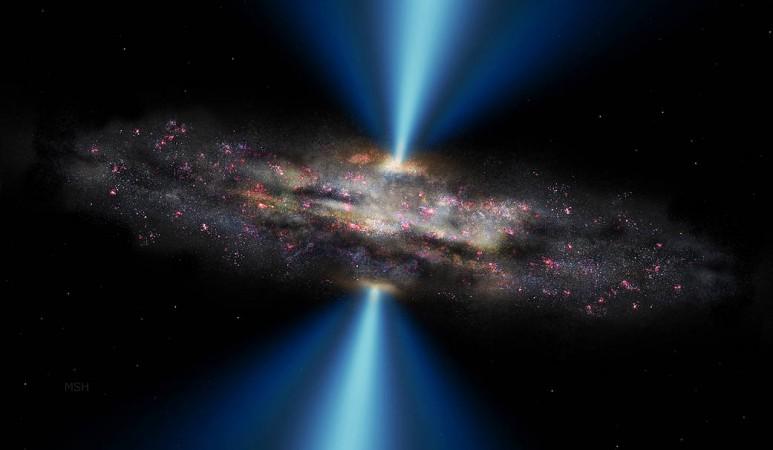
Black holes have fascinated people for decades now. It is often imagined as a vacuum pit that sucks everything into it but the truth is actually a lot simpler.
Black holes are regions of intense gravity in space, that attracts everything toward itself. The gravity is so strong that when something gets close to it, even light, it cannot escape. The black hole consumes it and gets larger, gets stronger, eats some more.
So does this region is space that is known to consume everything around it ever have an end?
Birth of black holes
Black holes are born with the death of a star. Whn massive stars, about ten times the mass of the sun, run out of fuel having used up all their hydrogen, and then fusing with hydrogen into helium, then carbon and oxygen all the way to iron in their deep core. When all that is left to bind it together but a heavy iron heart.
It is at this point that a star's life comes to an end and the outer layers explode in a supernova, sending radiation and material out in all directions. The core simply collapses on itself, this process takes about a fraction of a second.
"If there's enough mass there—three times the mass of the Sun in the centre of the star—this will collapse into a black hole. We call those stellar mass black holes because they have a mass similar to a star," says Bentz, an astronomer at Georgia State University.
This process of star death and black hole formation is a fairly common occurrence across the universe, notes the report. Stars and black holes are closely intertwined in areas where stars are formed at a high speed.
"It's actually really common to find dead stars where the new stars are forming, because the most massive ones don't live very long. They're gone right away," Bentz says. "The lifetime of a star depends on its mass. The most massive stars live much shorter lives because they just burn through their fuel very quickly."
Death of black holes
Black holes, regardless of how large they are - from stellar-mass to supermassive - will eventually die out, or evaporate in a process called hawking radiation. The idea is that if a black hole stops eating, or collecting mass, it will eventually die out because of subatomic particles that will eventually cause the death of the black hole.

The explanation for Hawking radiation is rather strange, but in a nutshell it goes like this - all over the universe, energy is converted to matter and for every particle there is a corresponding anti-particle that is formed. When there are no forces acting on them, they slam into each other, and disappear from existence. So energy becomes matter, and antimatter collide and become energy again.
"If that happens near a black hole and one-half of that pair is inside the black hole and one is outside the event horizon and the one outside can get away from the event horizon—well, then it has stolen a little bit energy from the black hole, and it can run off and take that energy away," explains Bentz.
So if there is no new acquisition of material into the black hole, it should eventually die out, atom by atom. The process is slow at first and as the black hole gets smaller, it speeds up. This process is slow, so slow that it is unlikely that a black hole has ever died since the beginning of time.
"There hasn't been enough time in the Universe yet for a black hole to die, even if you were to create one at the very beginning of the Universe. It's going to take something like 10^54 years before the first black holes start dying," Bentz says.
No one has really seen or watched a black hole die, in fact, humans are yet to even directly observe or photograph a black hole, so a lot of the things that are known about them are theoretical. They do not, however, pose any threats to life on Earth as yet.
Recently, a supermassive black hole that was devouring two suns a week was detected and it is growing at a pace that is frankly alarming, but even that one is so far away from Earth that there is zero chance of it ever reaching anywhere near the Milky Way.

















